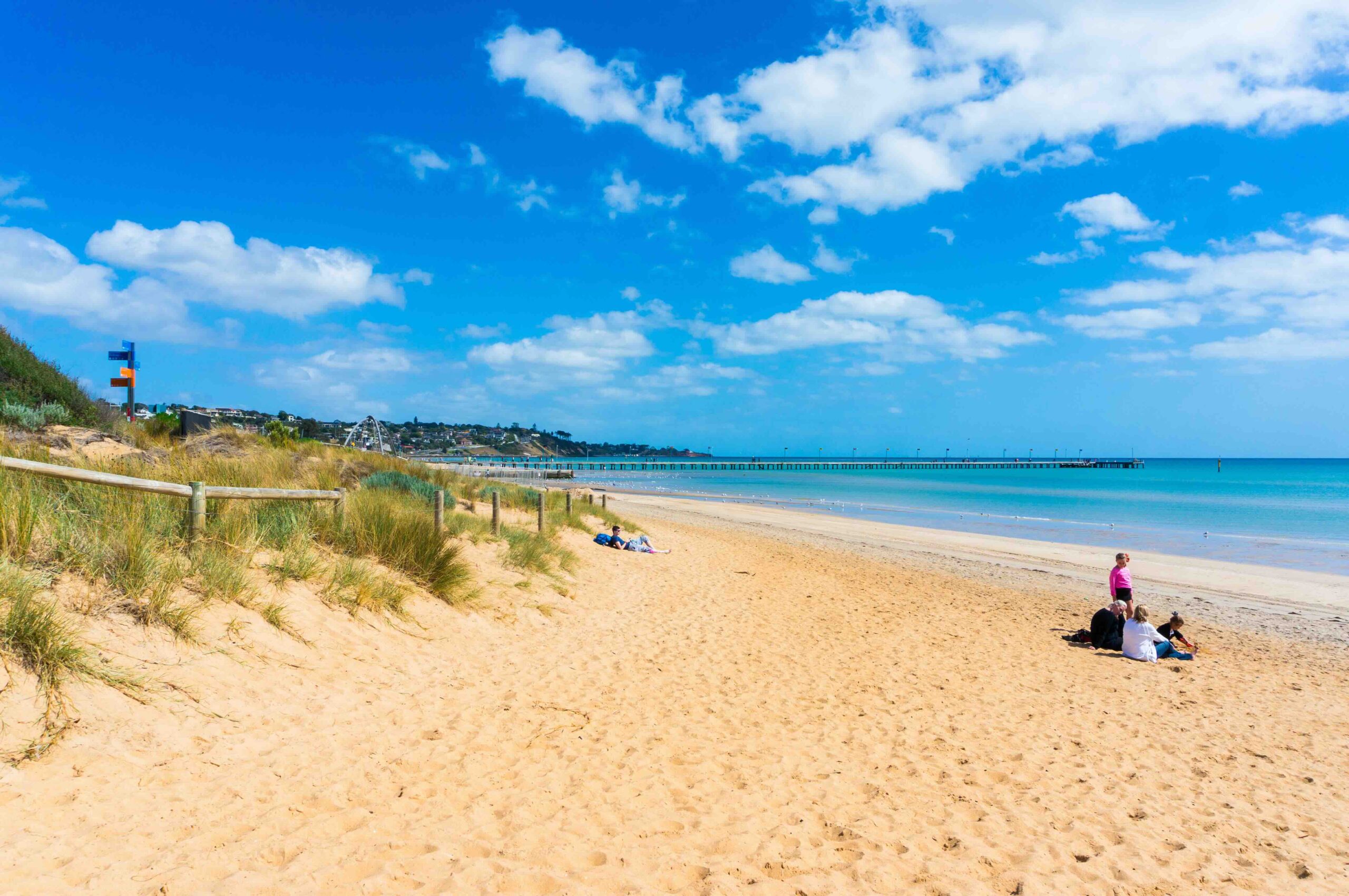Australia has some of the best beaches in the world and they are all free. Unlike many Europeans, we don’t have to pay for sun beds and umbrellas. Instead we’re free to bring our own beach chair and towels. And don’t forget the Esky, floaties, boogie boards and cricket set.
Our beaches are public places for everyone to enjoy. Well, nearly everyone. You don’t see many elderly people on the beach. Climbing down all those steps to Sandringham beach can be tricky after a hip replacement, similarly, it’s tough pushing a standard wheelchair on the sand at Mornington beach.
On a hot summer’s day, the local pool is often a better option for older people and people with a disability. Local pools have disabled parking. They also have steps and handrails. However, a family day there costs about $15. Staying cool can become quite expensive for those who cannot access our free beaches.
It’s fun to laugh at Europeans for paying €10 ($14.40) to spend a day on their concrete beaches. But they get the last laugh. Many of their concrete beaches are accessible. They have steps and handrails to assist people to get in and out of the water and there is a waiter on hand to bring cool drinks. For them, a day at the beach is a walk in the park.
In Frankston, there is a fully accessible beach with suitable parking for those who use wheelchairs. There are disabled toilets and picnic facilities. There is also a paved ramp to the beach, a café on the beach and special beach wheelchairs to help people to cross the sand to the water’s edge.
Just down the road at Mornington, the facilities for people in wheelchairs are abysmal. Although it is a popular beach, efforts to make it more accessible have been tokenistic. The two disabled parking bays are simply a standard car bay with blue disabled markings. People in wheelchairs need the extra space provided by a genuine disabled car park. And there are no cuts in the kerb so people in wheelchairs must take a long detour to get to the jetty. There are about 11,000 beaches in Australia. Of course not all should have a paved ramp and accessible café. But some should. We commonly assume that Australians have a fundamental right to access our beaches. When Lindsay Fox installed bollards in front of his beachfront home, he restricted public access to Point King Beach. He also gained access for his helicopter to land on the beach. Portsea now provides access for a private helicopter but not someone in a wheelchair.
Our beautiful sandy beaches are a public asset. With a genuine commitment to make some of our popular beaches accessible, we will all be able to enjoy a free beach.
First published in The Age 25 January 2015
